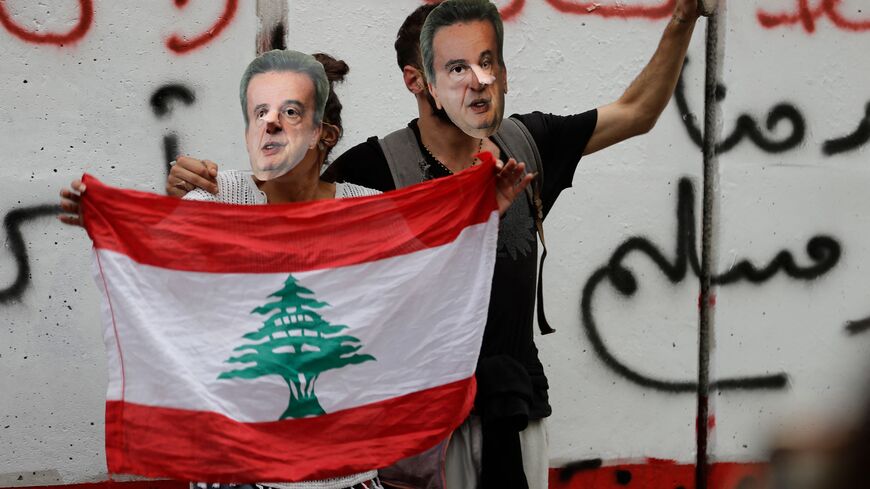Lebanon’s embattled head of the central bank Riad Salameh left his position on Monday, ending his decades-long tenure amid the ongoing economic crisis and widespread corruption allegations, as acting governor Wassim Mansouri is calling for reforms.
Salameh, who is under investigation in Lebanon, France and Switzerland for embezzlement, lashed out at his critics as he left the Banque du Liban (the Lebanese central bank) headquarters.
“Everything I did for the past 30 years was to try to serve Lebanon and the Lebanese,” he said, as reported by The Associated Press. “Some — the majority — were grateful, even if they don’t want to say so. And there are other people, well, may God forgive them.”
Salameh, 73, became governor in 1993 and his term had been renewed ever since until Monday. He was celebrated with ululations and music by few who gathered outside the bank’s offices in Beirut. The festive display was met by a wave of criticism on social media over Salameh's role in leading up to the economic crisis.
The World Bank 🇺🇳 said Lebanon’s 🇱🇧 ponzi finance scheme has caused unprecedented social and economic PAIN to the Lebanese people
— Saad Abedine (@SaadAbedine) July 31, 2023
and yet, this is how they treat Riad Salameh who is accused of laundering of more than $500 million from Lebanon’s public funds for personal use https://t.co/oWJkxzgPWD pic.twitter.com/8srwxKJtII
Meanwhile, Mansouri urged reforms upon Salameh’s exit, specifically a bank restructuring law and capital controls.
“The country cannot continue without passing these laws,” he said, according to The AP. “We don’t have time, and we paid a heavy price that we cannot pay anymore.”
Mansouri was previously Vice Governor of the bank. He is the first Shiite Muslim to head the financial institution. The position has traditionally been reserved for Maronite Christians under Lebanon's confessional power sharing system, according to Reuters.
Why it matters: Salameh has faced intense public and legal scrutiny since Lebanon’s economic crisis began in 2019, and he is widely blamed for the country’s financial woes. He is under investigation in Lebanon as well in as several European countries for embezzlement of public funds, money laundering and tax evasion, among other financial crimes.
Mismanagement of funds and capital controls by banks in Lebanon has left most Lebanese unable to access their savings, leading to numerous armed bank heists in the past year. The Lebanese pound has also lost more than 90% of its value on the informal market since the crisis began.
Earlier this month, Lebanese Judge Gabi Shaheen ordered the seizure of Salameh’s assets in Lebanon. In May, Interpol issued a Red Notice against Salameh pursuant to arrest warrants that were issued by France and Germany.
The United States, France and the International Monetary Fund are reluctant to provide Lebanon with aid due to the lack of anti-corruption and governance reform in the country. The IMF and Lebanon reached a conditional deal on a $3 billion bailout last year, but the funds have yet to be released as a result. The IMF warned last month that Lebanon’s crisis will worsen sans reform.
Know more: With no president in Lebanon, and a caretaker government, no new appointment for a central bank chief is expected. Lebanon's parliament has failed 12 times to elect a new president since Michel Aoun’s term ended last October.








